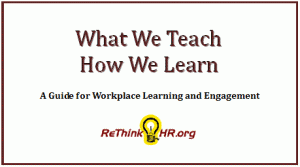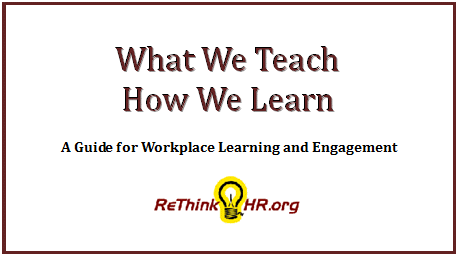 Working your way past the locked door, to the room of the interview
Working your way past the locked door, to the room of the interview
I am sure that many of us have had our share of interviews. Gone through the process of entering in data and resume information into a company applicant tracking system for a position. For those of us who may be a little more savvy, we may have built our relationships, made contact with our influential contacts, networked and sweet-talked our way into an interview.
Denied
Whichever way you chose to apply for a job, in the interview is where you feel you did your best. You were the perfect candidate for the position when you read the posting. It was love at first sight. You believed in your heart that you had a great rapport and even did the proper follow-up afterword. Warm and fuzzy feelings ensue - until….
You receive the letter, the email. The standard communication we all have seen when we didn’t get a role.
Dear Notgetin The Job,
Thank you for inquiring about the position of “INSERT TITLE” with the “INSERT COMPANY”, where every day we make a positive difference in the lives of our INSERT CLIENT OR GROUP HERE.
After reviewing a large number of applicants, we have decided to pursue other candidates for this role. However, we appreciate and recognize the value of your experience. Your information will be retained and considered for future career opportunities which match your background.
Thank you again for your interest and time for applying.
The ATS
For those of you lucky enough to never see a notification like this, consider yourself, exactly that, lucky. In fact I consider you some type of alien from another planet or someone who denies mail, has no email address or contact information. Now-a-days email is the preferred communication channel for letters such as this. With the current economy, you are lucky if a company sends notification on any progress within the process of an interview.
Charlie Judy over at HRFishbowl.com had some good points from the SHRM 2010 Annual Conference (#SHRM10 ) in his interview with Gerry Crispin, Principal with CareerXroad.
I personally don’t think it is bad if you get one of these notes. If you have had only one interview then it is sufficient. However, if you have had two or three? If you have been in a room with multiple members of leadership and may have even been a finalist for a position… I do think a personal message from your internal recruiter, HR representative, and/or hiring manager is adequate, desired from the candidate and in good form for the company.
Now if you ended up bombing, insulting or destroying the end of your final interview process then you may not deserve it. Good luck getting anything.
What if your Candidate responded back to you in the same way?
How do you think an internal recruiter, HR representative, and/or hiring manager would react? Would you be offended, look at that candidate negatively. Utter the words “well how dare they!” and ban them from the process forever. Or would you chalk it up and say “that’s the market!”
Dear ImmaNot GonnaWorkForYou:
I wanted to take a moment to thank you for your time in my interview process. I appreciated your interest and your offer to work for XYZ. However, I have decided to pursue other companies that I feel are a better match for my specific job needs and requirements.
I wish you the best of luck in your sourcing, search and future endeavors. Please feel free to check back with me, as I may have interest with XYZ in the future .
Regards,
ImSoAwesome ImWorking ForTheOtherGuy
Think about it, candidates don’t like your response. So when you have the perfect person that you have been interviewing for a role, you make the offer and then they walk away with this response… how would you like it? I do understand we in HR don’t have time to respond to every candidate, but for the ones you have a full process with… don’t you think they deserve the time and closure?
So what are your thoughts? Is this off target? What would your reactions be? I would love to see you comment on it below!
Benjamin McCall on Twitter
http://ReThinkHR.org



 Working your way past the locked door, to the room of the interview
Working your way past the locked door, to the room of the interview By now, everyone has watched the historic event that took place this past Sunday. The ups and downs, the emotional outburst, and fantastic inspiration that can only be described as history-making. Oh, you thought I was talking about Super Bowl XLIV. Ummm, no. What I am talking about is the new reality show
By now, everyone has watched the historic event that took place this past Sunday. The ups and downs, the emotional outburst, and fantastic inspiration that can only be described as history-making. Oh, you thought I was talking about Super Bowl XLIV. Ummm, no. What I am talking about is the new reality show 

